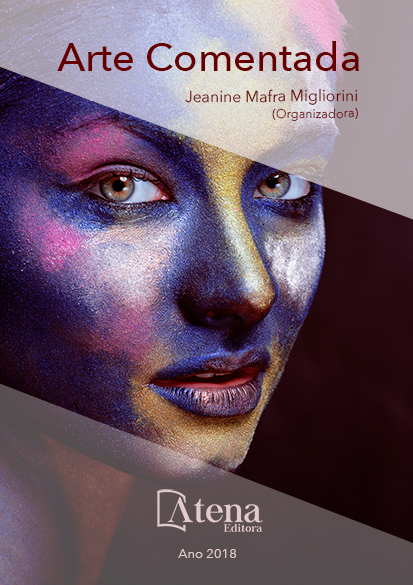
PRODUÇÃO DE SENTIDOS E (RE) SIGNIFICAÇÃO NA HISTÓRIA A PARTIR DO MOVIMENTO BLACKFACE
Como identificar em um texto a
presença explícita de outro(s) texto(s)? Qual
efeito de sentido é buscado com essa utilização?
A fim de evidenciar esse mecanismo linguístico,
selecionamos algumas cenas da série televisiva
intitulada 220 volts lançada em 2014 pelo ator
Paulo Gustavo, o qual apresenta, dentre outras
personagens, a cômica Ivonete, uma mulher
negra e pobre que luta pela sobrevivência.
Como o intuito da série era a produção de
humor, Ivonete foi ridicularizada, exagerada em
suas características negras, o que nos remete
à técnica do Blackface. Nisso, vislumbramos
a intertextualidade que se estabelece nessa
série com a referida técnica. Entretanto, não
temos uma simples retomada do Blackface:
estamos diante de um quadro invertido dos
fatos ocorridos no passado que traz como
resultado uma paródia. Desse modo, notamos
a presença de aspectos dialógicos e polifônicos
na série. Segundo o criador da personagem,
o efeito de sentido pretendido é enaltecer a
mulher negra e empoderada. Contudo, para
isso, foi preciso ridicularizar o negro, utilizando
a criticada técnica do Blackface. A partir do
exposto, abordaremos os efeitos de sentidos
produzidos com tal personagem, buscando
compreender até que ponto a comédia pode
se valer de práticas racistas para a produção
de humor. Para tanto, aplicamos os conceitos
de paródia e intertextualidade na concepção
de Fávero (2003), Sant’Anna (2002), dentre
outros.
PRODUÇÃO DE SENTIDOS E (RE) SIGNIFICAÇÃO NA HISTÓRIA A PARTIR DO MOVIMENTO BLACKFACE
-
DOI: 10.22533/at.ed.57519180110
-
Palavras-chave: Intertextualidade; Blackface; Paródia
-
Keywords: Intertextuality; Blackface; Parody
-
Abstract:
How to identify in a text the
explicit presence of other(s) text(s)? Which
effect of meaning is searched with this use? In
order to evidence this linguistic mechanism, we
select some scenes from the television series titled 220 volts launched in 2014 by the actor Paulo Gustavo, which presents, among
other characters, the comical Ivonete, a black and poor woman who fights for survival.
Since the purpose of the series was the production of humor, Ivonete was ridiculed,
exaggerated in her black characteristics, which brings us to the blackface technique.
In this, we see the intertextuality that is established in this series with the mentioned
technique. However, we are not faced with a simple resumption of the blackface: we
are faced with an inverted picture of the events occurred in the past that results in a
parody. In this way, we notice the presence of dialogical and polyphonic aspects in
the series. According to the creator of the character, the intended effect is to enhance
the black and empowered woman. However, for this, it was necessary to ridicule the
black, using the criticized blackface technique. From the above, we will approach the
effects of senses produced with such a character, trying to understand to what extent
the comedy can use racist practices for the production of humor. For that, we apply the
concepts of parody and intertextuality in the conception of Fávero (2003), Sant’Anna
(2002), among others.
-
Número de páginas: 15
- Daiany Bonácio


